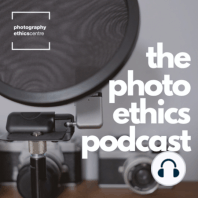2 min listen

Mallika Vora: On complicating human narratives
Mallika Vora: On complicating human narratives
ratings:
Length:
37 minutes
Released:
Jun 14, 2021
Format:
Podcast episode
Description
In this episode, we talk with Mallika Vora about the necessity of complicating narratives in photography, and providing a more nuanced understanding of events. She also addresses the issue of objectivity within the photojournalism industry, and the need to be transparent with the viewers about why you’re making the pictures you’re making. Mallika emphasizes prioritising the person you are photographing. She believes a photographer should foster a relationship of trust and mutual vulnerability, while understanding who the photograph really belongs to. What you’ll find inside: “Trust is established not when the picture’s being taken, but in between the moments that the picture is being taken. And I really value that. And to also display some vulnerability and some willingness to share of yourself in the moment that someone else is, I think is really, really important. And you can’t really do that when you’re also trying to take the picture. Sometimes it takes putting the camera down, looking someone in the eye, and telling them something really personal. That’s a part of being human. That’s a part of letting someone know you’re right there with them, and you feel what they feel. And you, too, know what pain feels like, or you, too, know what it means to be vulnerable. And then in those moments that trust is built, and then after those moments, then the photos happen.” (10:20) “It also made a difference that the editor was on the same page as the both of us as well. And what was established at the very, very beginning was, by the editor themselves, was: I know you know this already but I need to say this. The safety of the subjects is the most important, their dignity is the most important, their comfort is the most important. The pictures will come but if you focus on that as being the priority in our process, then the pictures themselves will be what they need to be, and will say what they need to say.” (14:43) “When I say that I seek to complicate narratives, I want to kind of break past any assumptions that a person looking at the photograph might have about the person in the photograph.” (16:26) “I think the job of the artist or the journalist or the visual storyteller is to critique power. So I think complicating a narrative is complicating a narrative that has been handed to us by power that we then have to subvert in order to start creating change in society.” (17:06) “In protest photography, I think it is much more useful when presenting that story, for people to know that I’m a sympathetic journalist in that place. Like I’m documenting these feminist protests because I’m also a feminist and I support what they’re doing. And I think that that honesty is absolutely necessary... one, to understand the pictures themselves and, two, to understand the context I’m creating for them.” (23:37) “In regards to transparency with subjects, I mean, it’s not fair if they don’t know where the picture is going, why you’re taking the picture, who you are when you’re taking this picture, because their image ultimately belongs to them.” (24:10) “It would be lying to say that there isn’t sometimes a voice in my head that would be like ‘this would be a really iconic, like famous photo’ because it’s really intense, and x, y, and z. And I think a lot of photographers have that voice, and I think that voice is often trying to convince you to do something unethical.” (31:41) “Focus on all the moments, not just the darkest ones.” (33:15)What does photo ethics mean to Mallika? “Ethics is where a bunch of really cool things come together. Those really cool things being transparency, safety, consent, context, and kind of removing yourself from authorship in a certain way as well. Like I think that the biggest challenge, especially the way the media landscape is structured, is claiming ownership over images and who has ownership and basically this problem of property, right? But when you really think about it, the person in the picture... it’s their
Released:
Jun 14, 2021
Format:
Podcast episode
Titles in the series (49)
Trailer: Welcome to The Photo Ethics Podcast: Find out what we mean when we say 'photo ethics' by The Photo Ethics Podcast